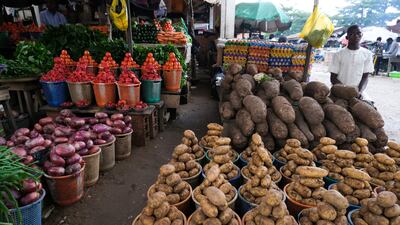Nigeria is in talks with the World Bank’s private lending arm and other lenders to raise about $30 million to help finance a vaccine plant, three decades after the nation’s only production facility was shut.
Biovaccines Nigeria, which is 49 per cent owned by the Nigerian government with the balance held by May & Baker Nigeria, plans to begin construction of the plant in the first quarter of next year, said Oyewale Tomori, chairman of Biovaccines.
“We have done the last stages of our discussion” with the International Finance Corporation, Mr Tomori, said in a virtual interview in Lagos.
The coronavirus pandemic laid bare the desperate need for a local facility for Africa’s most-populous nation – with more than 210 million inhabitants – which depends on imports for all its inoculations. With countries prioritising Covid-19 vaccines for their own citizens, many nations in Africa are struggling to get enough. Nigeria has administered doses to protect against coronavirus to just 1.2 per cent of its people, according to Our World in Data.
Biovaccines is in talks with companies in India and Indonesia to transfer technology, Mr Tomori said. The plant in Otta, in the nation’s south-west Ogun state will initially “fill and finish” vaccines while full manufacturing “will come with time” and in collaboration with foreign partners, he said.
Fill and finish involves importing the raw material for the vaccines and then packaging it for distribution. South Africa’s Aspen Pharmacare and the Biovac Institute operate similar facilities. Elsewhere on the continent, there are small vaccine production facilities in Senegal and North Africa.
The plan is to manufacture vaccines against common diseases including yellow fever and measles, Mr Tomori said. Biovaccines is discussing with the government to expand the mandate to include the production of Covid-19 vaccines, which wasn’t in the original joint venture agreement.
The plant will have the capacity to inoculate about 10 million people every year.

